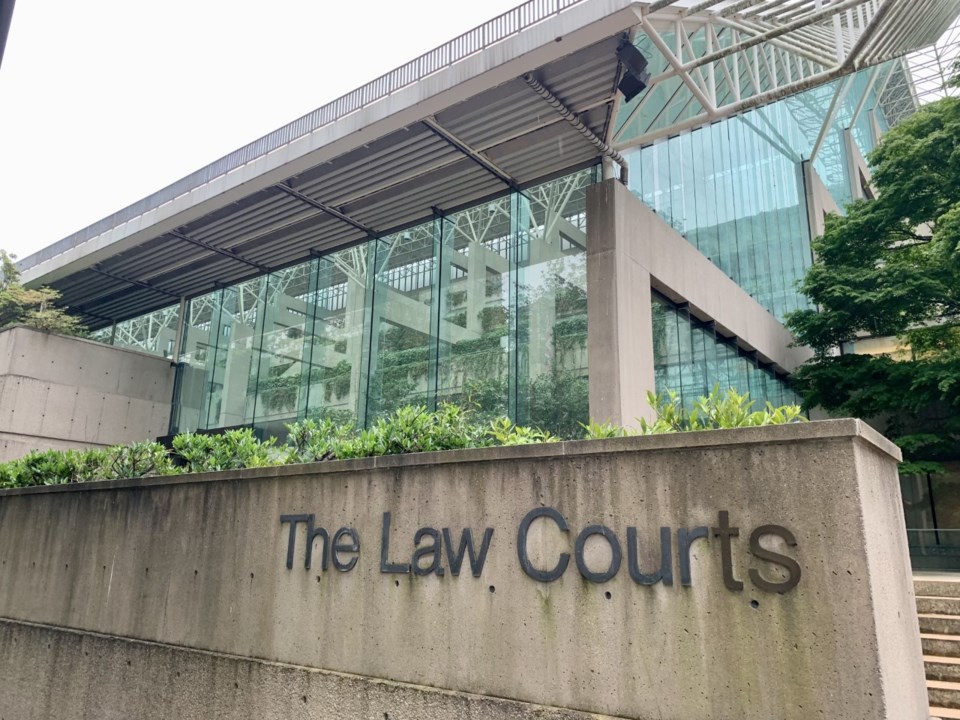A BC Supreme Court justice has ordered China Southern Airlines (CSA) to pay a former manager $208,000 in damages, and scolded the way the Chinese government-controlled company behaved in legal proceedings.
Paul Chu sued the Guanghzhou-based company in September 2019 for wrongful dismissal after working for the airline from 2008 to 2018.
Justice Frits Verhoeven’s Jan. 5 verdict said Â鶹´«Ã½Ó³»general manager Shaohong “Kitty” Chen approached Chu, a former manager and board member of Harmony Airways, to ask for his help in setting up Â鶹´«Ã½Ó³»operations for CSA in 2008. He eventually was named marketing and business development manager.
At the start of 2018, Rui “Jocelyn” Zhang replaced Chen, demoted Chu in March 2018 to customer service at the reception desk in the downtown Â鶹´«Ã½Ó³»office and cut his pay 25 per cent.
Chu alleged that CSA embarked on a campaign of insincere warnings, unfair discipline and public embarrassment against him.
“CSA had no complaints about the plaintiff’s work prior to the arrival of Ms. Zhang in January 2018,” Verhoeven wrote. “However, beginning in February 2018, CSA began criticizing the plaintiff’s work, issuing reprimands accompanied by threats of dismissal, and carefully documenting disciplinary measures with self-serving records”
Chu was demoted again and assigned to work at Â鶹´«Ã½Ó³»International Airport before he was fired Feb. 1, 2019 for alleged incompetence and time theft – despite the airline’s commitment to provide more training.
After Chu filed his lawsuit, CSA countered with a statement of defence that contained 17 allegations. All were baseless according to Verhoeven, except for Chu’s inability to perform as a frontline airport services worker. The judge noted that prior to the two-day November summary hearing, CSA abandoned the most serious allegations of fraud, theft of model airplanes and sexual harassment in the workplace.
“The defendant has singularly failed to establish just cause for dismissal without notice,” Verhoeven wrote. “All of its allegations are either entirely unsupported by evidence or lacking in any merit. Accordingly, the plaintiff is entitled to damages for wrongful dismissal."
Chu, a Canadian citizen since 1979, was 68 when fired. Since then, the pandemic hit and he unsuccessfully applied for jobs with aviation and tourism-related businesses. His application to work at McDonald’s was rejected, but he now works as a DoorDash meal-delivery driver.
Verhoeven ordered CSA to pay Chu $100,000 in punitive damages, $58,053 for wrongful dismissal and $50,000 for mental distress.
Verhoeven noted CSA is a “very large corporation” which reported the equivalent of $590 million in 2019 profits and rebuked CSA for responding to Chu’s lawsuit with “vicious, vindictive, and unfounded allegations that it knew or ought to have known could not be supported.”
Verhoeven said CSA failed to provide documents from its list of documents, was uncooperative in scheduling the examination for discovery, caused delays in trial scheduling and failed to pay costs.
“The record shows a pattern of conduct on the part of the defendant designed to stall and frustrate the prosecution by the plaintiff of his claims in this litigation, in circumstances where CSA must be taken to know that the plaintiff’s financial claims were modest, especially in relation to the high costs of litigation and his limited resources,” the judge wrote. “The description ‘hardball tactics’ easily applies to the defendant’s behaviour both before and after his termination.



